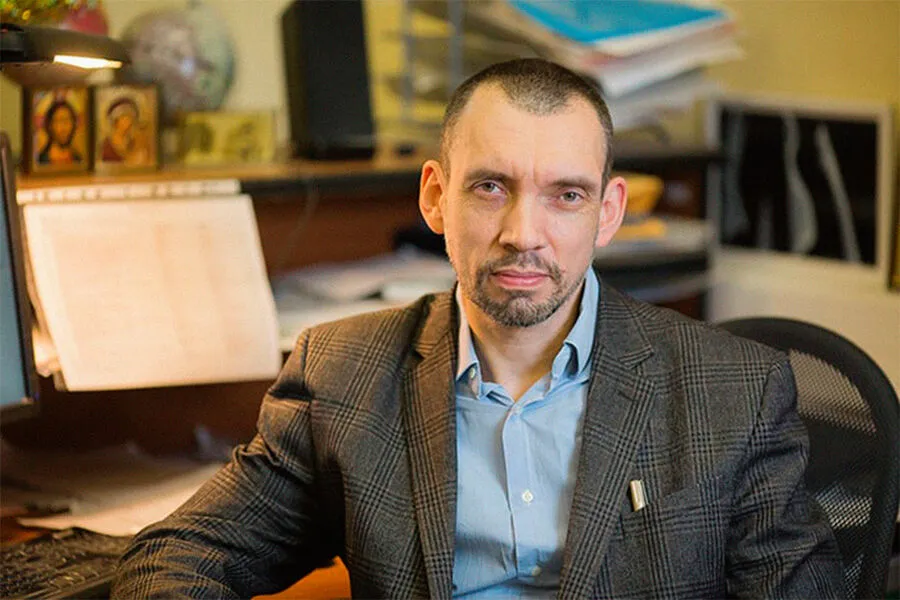Robot Volodya took to the sky.
The Russian low‑cost airline Pobeda has completed the world’s first test flight with an onboard humanoid robotic flight attendant, demonstrating how service robots could reshape passenger experience and ground operations in the aviation sector.
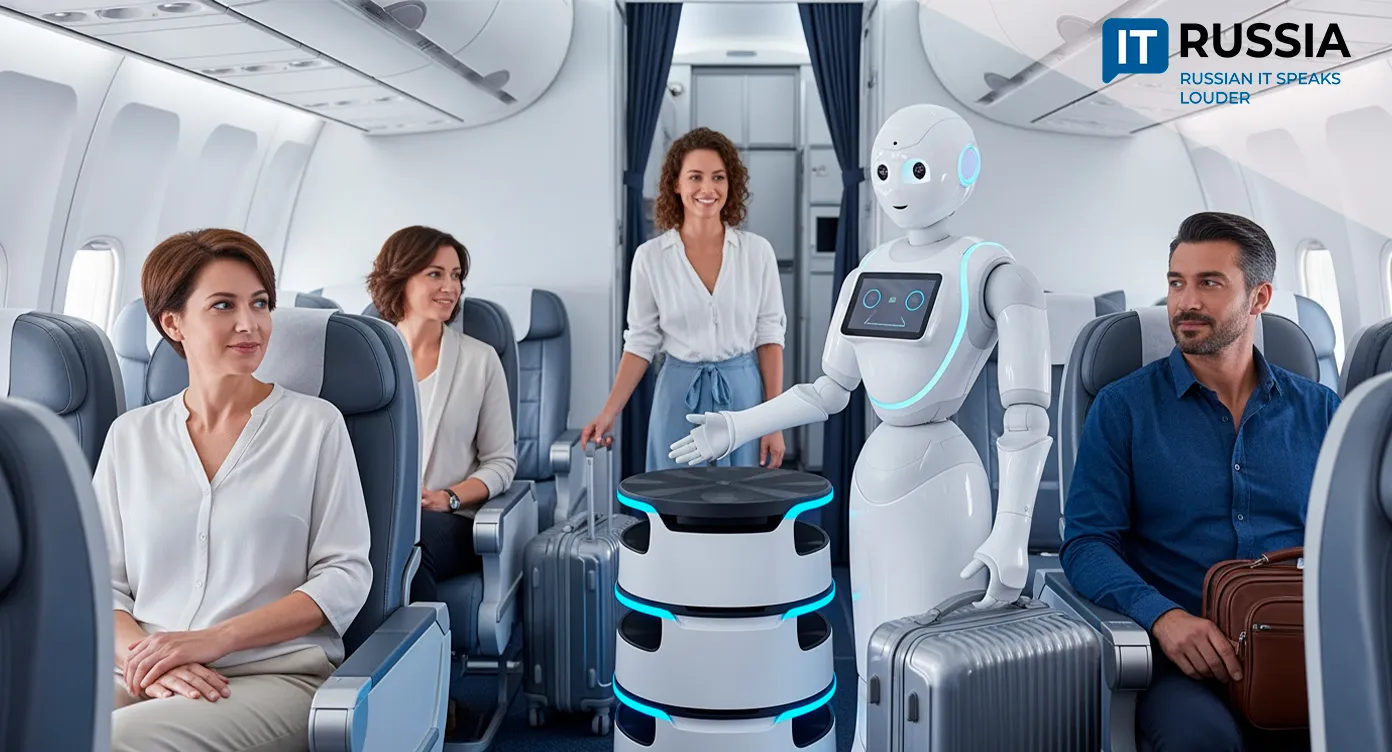
Robot Volodya Takes to the Sky
Pobeda Airlines has carried out the first-ever test flight featuring a humanoid robotic flight attendant acting as a full-service assistant. The robot, named Volodya, completed the entire service cycle on the Ulyanovsk–Moscow flight on 12 November 2025, including greeting passengers at boarding, checking boarding passes, helping with luggage placement, and performing a safety demonstration together with the crew.
The successful experiment showed that the technology is ready for practical use in commercial aviation. Pobeda noted that robot assistants could significantly improve service quality, especially on international routes with multilingual passengers, while also reducing long‑term operating costs.
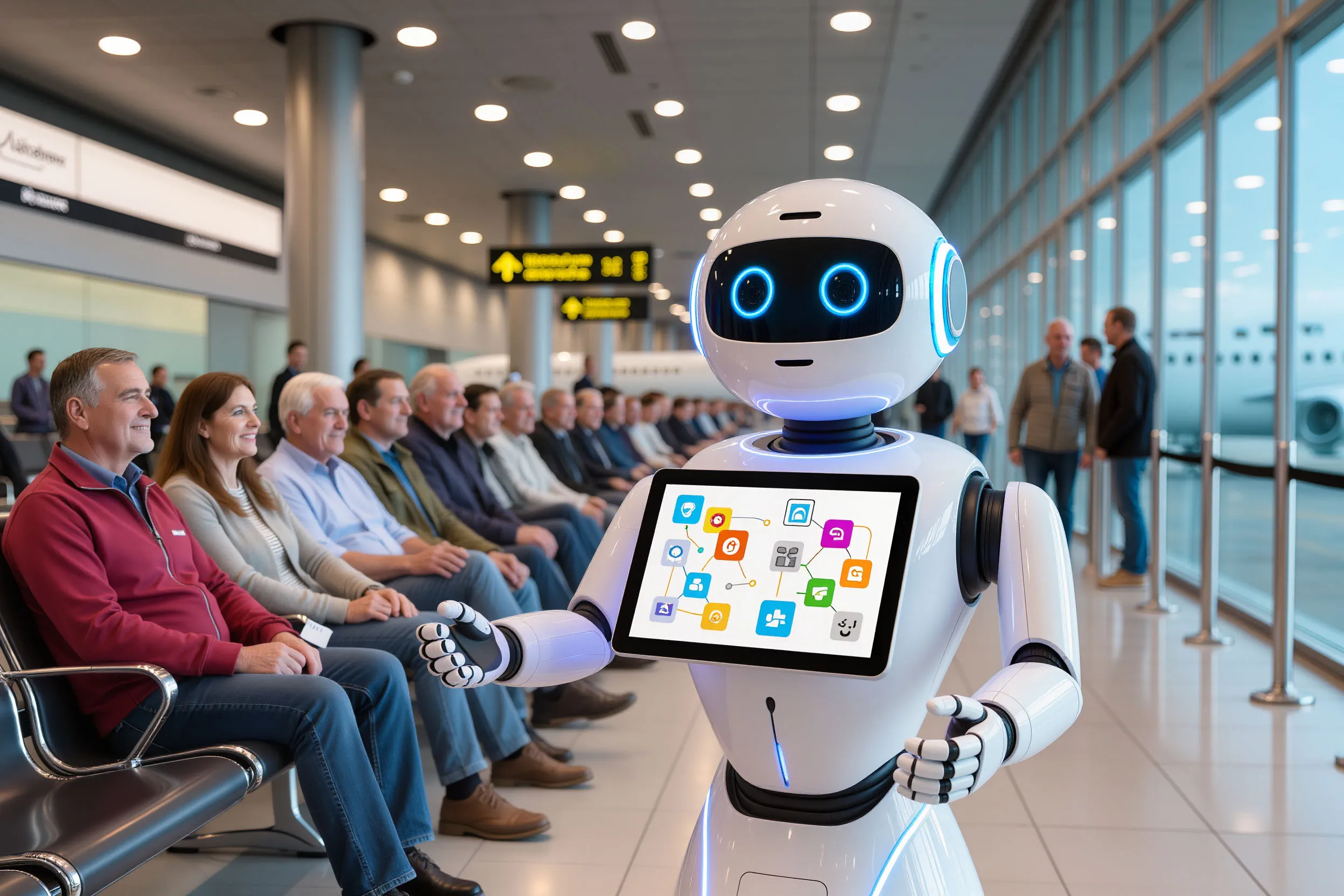
Beyond a single test flight, the project illustrates how robotic assistants can enhance the reliability and consistency of standard procedures and highlights Russia’s growing leadership in service robotics for the aviation industry. The world‑first claim also positions the technology for future export.
From Information Robots to Full‑Scale Assistants
Russia is rapidly expanding the use of robotics in airports. At the “Archipelago‑2025” forum, Transport Minister Andrey Nikitin emphasized that ground operations at Russian airports are already undergoing automation: autonomous tugs move baggage, and indoor service robots assist passengers inside terminals.
In St. Petersburg’s Pulkovo Airport, a pilot project launched in December 2024 using autonomous wheeled robots known as “Piranha” to transport baggage for passengers with limited mobility. In early 2025, Pulkovo also began testing autonomous cleaning robots from Waybot Robotics capable of covering up to 5,000 m² on a single charge at a rate of 1,500 m² per hour.
A Short but Productive History
Russian airports have several years of experience using Promobot service robots. In June 2022, the Promobot V.4 model began working at Perm’s Bolshoe Savino Airport, where it provides schedule information and navigation assistance. Promobot robots now operate in airports in more than 43 countries, including the United States, Chile, and Turkey.
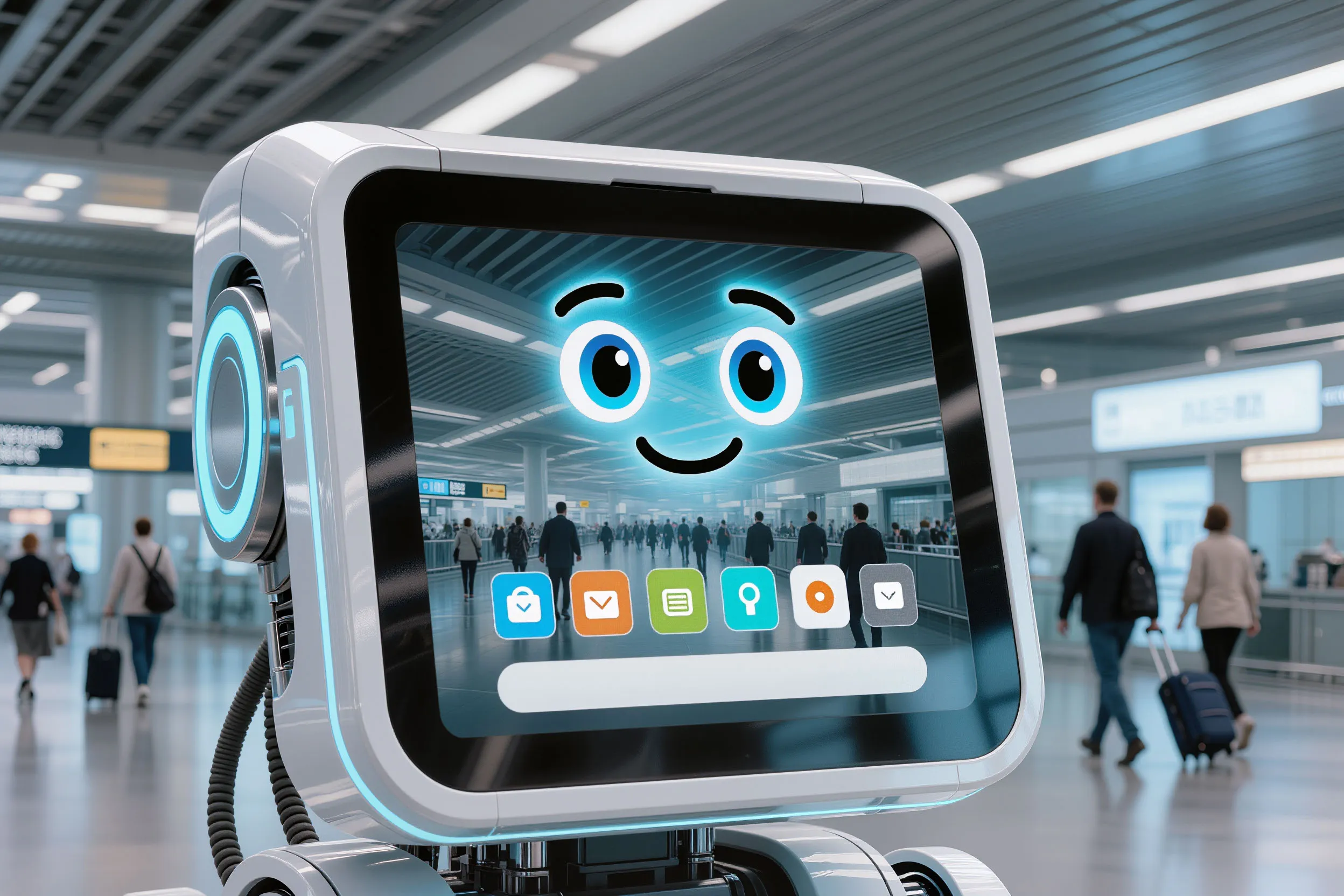
In April 2022, an advanced Promobot service robot was installed at Istanbul’s Sabiha Gökçen International Airport. Capable of interacting in Russian, English, Turkish, Arabic, and Spanish, it helps passengers find their gates, navigate the terminal, scan boarding passes, and request transportation.
The export potential of Russian humanoid robotics is linked to their modular architecture, multilingual capabilities, and resilience in high‑traffic service environments.
Toward a Robotic Sky
The Pobeda project marks the start of a new era in aviation services. By 2027, Russia expects to expand onboard robot‑assistant deployments to additional airlines and airports. By 2030, robot assistants are expected to gain new capabilities, including advanced multilingual support, face‑recognition‑based personalization, and dedicated functionality for passengers with limited mobility.
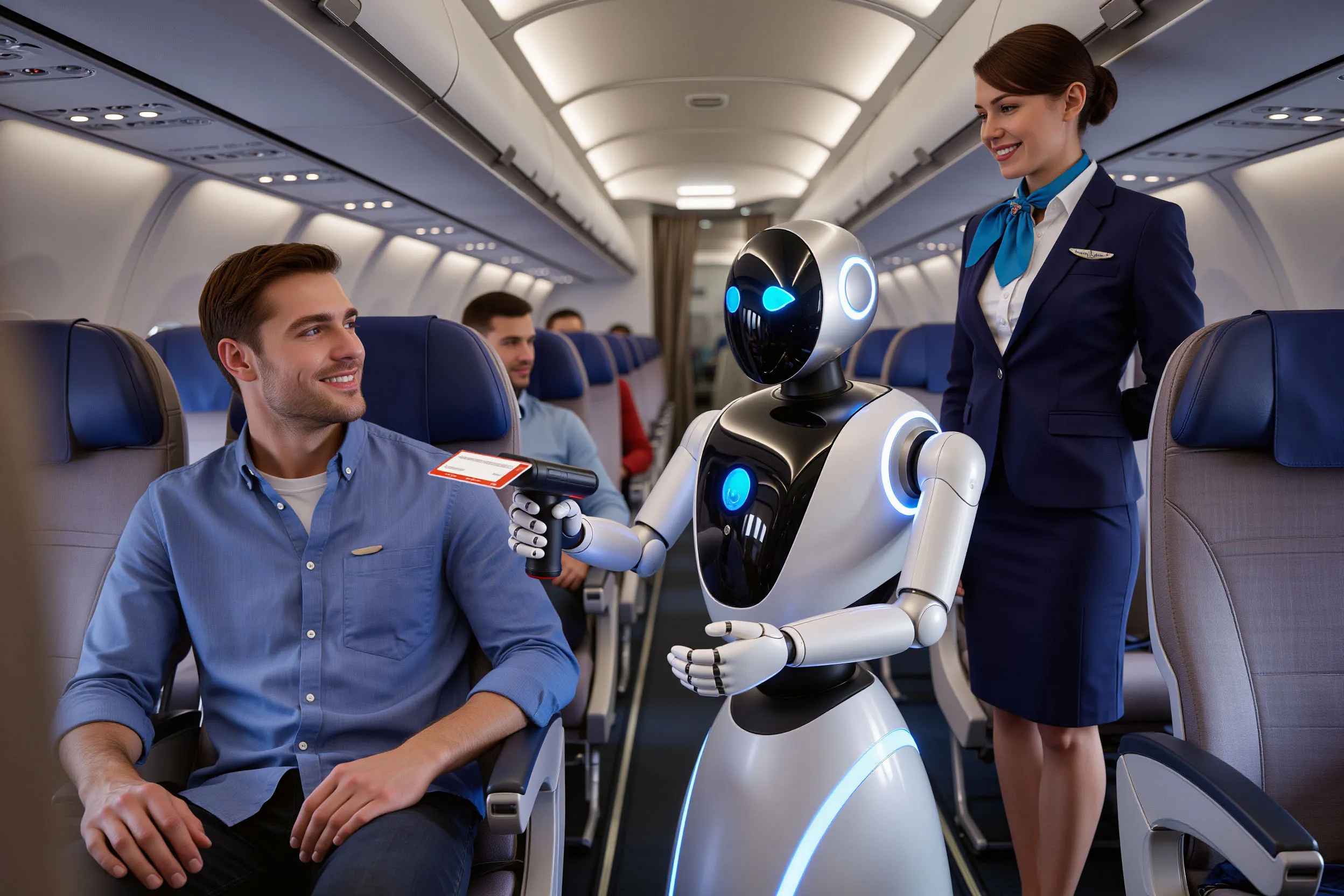
By the early 2030s, fully automated airports with humanoid assistants onboard aircraft could become standard practice globally. A mature ecosystem of robot assistants—covering both ground operations and in‑flight services—could make aviation safer, more efficient, and more convenient.
For Russia, the large‑scale adoption of aviation robotics strengthens the global competitiveness of domestic robot manufacturers and opens a high‑margin export niche.


